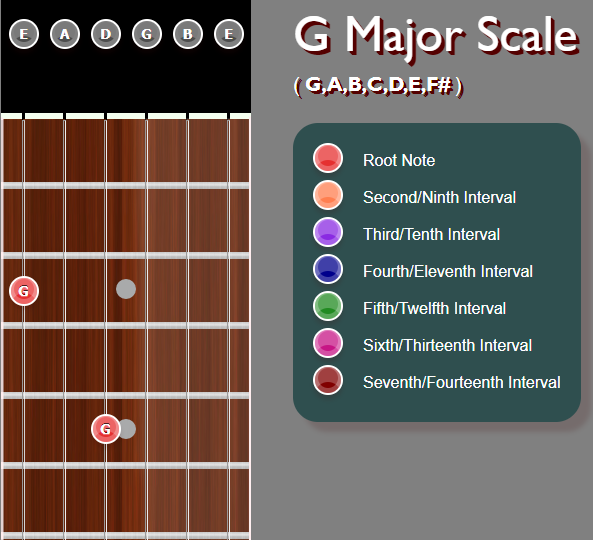Note Intervals
In this tutorial, we're going to look at note intervals. In the Chord Parts tutorial, we learned about the intervals that make up the Major and Minor Chords.
In this tutorial, we'll go through the intervals of the G Major Scale.
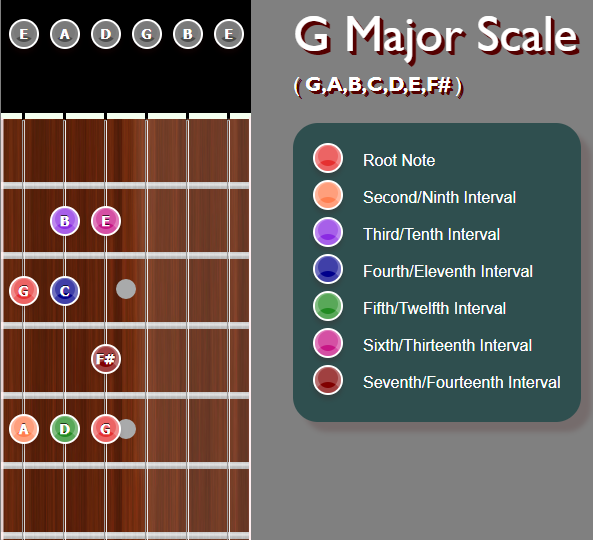
We'll go through the intervals based on the ROOT NOTE: G, and how you could play them on the guitar.
NOTE: These intervals can be sharpened or flattened by moving up/down 1 fret. But we will not be displaying those.
G Major intervals
2nd Interval
As you can see in the G Major Scale, the 2nd interval is the A.
We cannot play 2 notes on the same string, so we move it to the A string open.
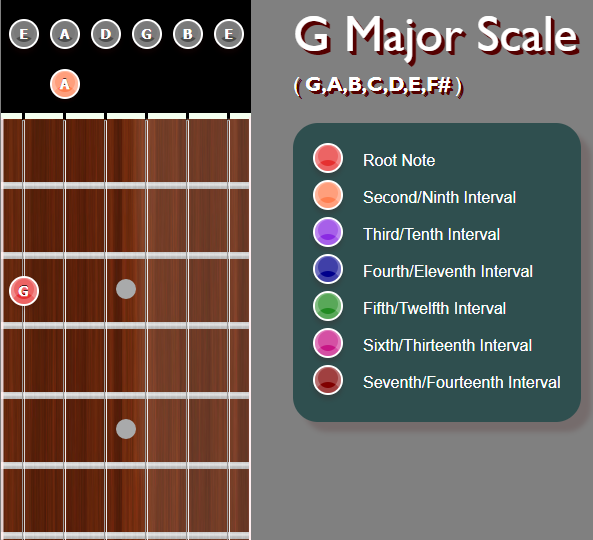
3rd Interval
You might remember that the 3rd interval determines if the chord is Major or Minor.
So, playing the 3rd will give it a Major sound, playing the b3 will give it a minor sound.
Here is the (Major) 3rd Interval.
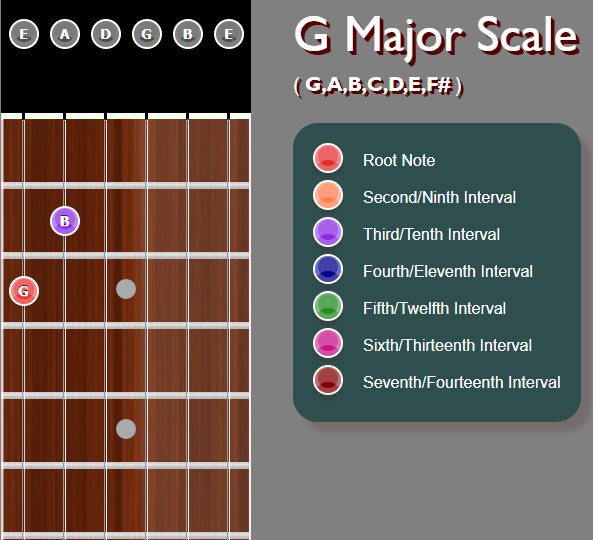
4th Interval
The 4th interval is a sound that you are probably very familiar with in songs.
The song that is often called the Greatest Rock Riff was written using 4ths.
Here is the 4th interval:
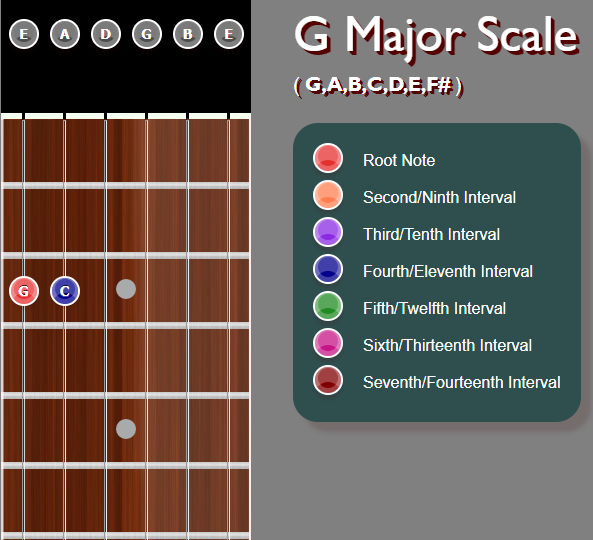
5th Interval
Like the 4th, the 5th interval should sound very familiar. It is often called a Fifth Chord.
Since it does not contain a 3rd, it is neither Major, nor Minor.
There is so much to say about the 5th interval, that it has it's own tutorial.
But, for now, here is the 5th interval:
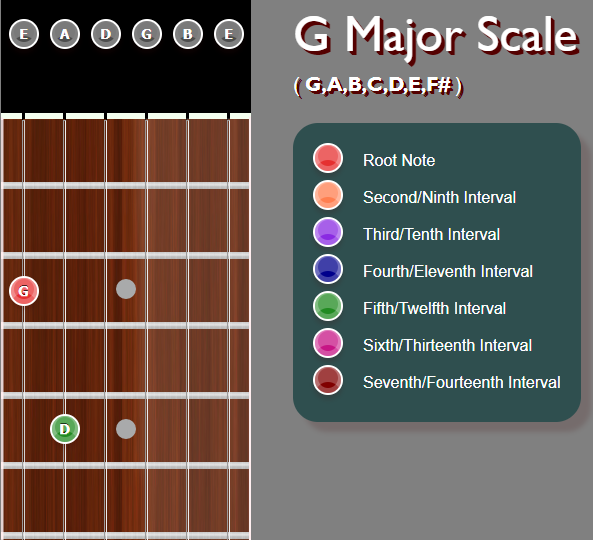
6th Interval
The 6th interval brings us into an area where you have to skip strings (if you cannot stretch that far).
The string that's between the 2 notes should not be played. You can mute it using your fretting hand.
Just tilt your finger that is fretting the root, until it mutes the middle string.
Here is the 6th interval:
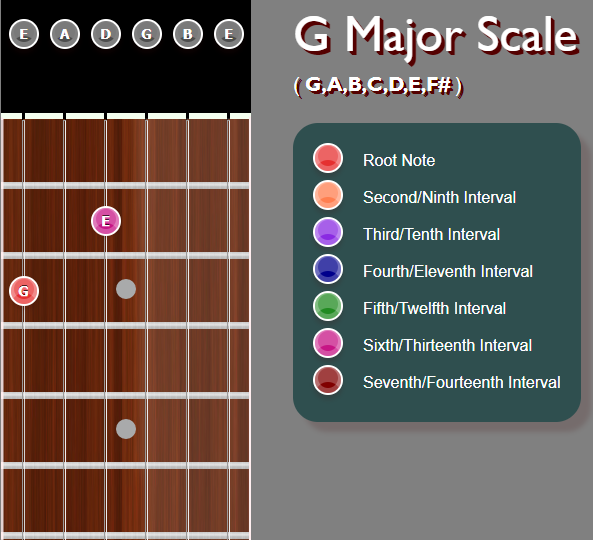
7th Interval
Continuing the string skipping of the fretted notes, we have the 7th.
As seen in our Chord section, the 7th is natural (without sharps or flats) when it's Major, and it is flattened when it's Minor.
So, in the scale of your song, if the song's scale says the G is minor, flatten the 3rd.
Here is the 7th interval:
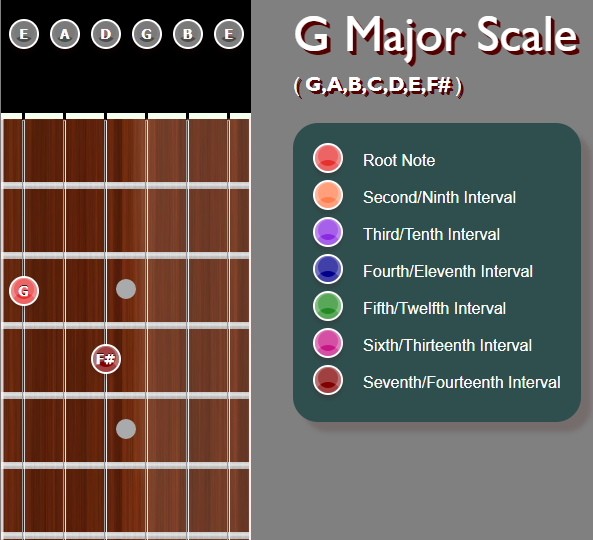
Octave Interval
The octave interval is simply the same note as the root, an octave up.
Remember to mute the middle string.
Here is the Octave Interval:
